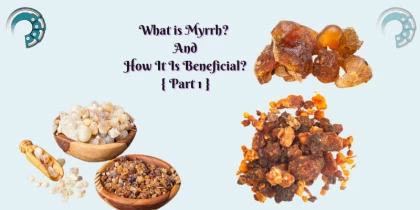
Understanding Menopause
It usually lasts seven years, but it can last up to fourteen years. The length of time can vary depending on lifestyle factors such as smoking, the age at which it begins, and race and ethnicity. The body's production of oestrogen and progesterone, two hormones produced by the ovaries, varies greatly during perimenopause.
The menopausal transition affects each woman differently and in different ways. The body begins to use energy differently, fat cells change, and women are more likely to gain weight. Changes in bone and heart health, body shape and composition, or physical function may occur.
Is it menopause?
If you are experiencing symptoms that are common during menopause, your doctor may inquire about your age, symptoms, and family history to determine if the menopausal transition is the source of your problems. In some cases, your doctor may recommend a blood test to check your follicle-stimulating hormone (FSH) and estradiol (E2) levels to rule out any other possible causes of your symptoms.
While the menopausal transition is commonly referred to as "menopause," true menopause does not occur until a woman's last menstrual period is one year after her last menstrual period. As a result, a woman who does not want to become pregnant should use birth control for at least a full year after her last period.
A hysterectomy, or surgical removal of the ovaries, which produce hormones, can also cause menopause. If you have surgery to remove your uterus or ovaries and are not taking hormones, you will immediately experience menopausal symptoms.
Women enter postmenopause after menopause. Women after menopause are more prone to heart disease and osteoporosis. During this time, it is critical to maintain a healthy diet, stay active, and get enough calcium for optimal bone health.
What are the symptoms and signs of menopause?
Many parts of a woman's body use oestrogen. As oestrogen levels fall, you may experience a variety of symptoms. Many women have mild symptoms that can be treated with simple lifestyle changes like avoiding caffeine or carrying a portable fan. Some women do not require any treatment at all, but others may experience more severe symptoms. The severity of symptoms varies greatly across the globe, as well as by race and ethnicity.
Here are some of the most common changes you may notice in your forties and fifties. Some of these symptoms may be related to ageing rather than menopause.
Your menstrual cycle has changed. This may be the first thing you notice. Your menstrual cycle may no longer be regular. They can be shorter or longer in duration. You may bleed more or less than usual. These are all normal changes, but to ensure there isn't a problem, see your doctor if you experience any of the following:
- Your menstrual cycles are very close together.
- You're in a lot of pain.
- You've got spots.
- Your menstrual cycle lasts more than a week.
- After more than a year of not bleeding, your periods resume.
Flashes of heat.
Hot flashes are common in women and can last for many years after menopause. They could be linked to fluctuating oestrogen levels. A hot flash is a sudden sensation of heat in the upper or entire body. The skin on your face and neck may become flushed. Red blotches on your chest, back, and arms are possible. Heavy sweating and cold shivering may occur as a result. Hot flashes can be mild or severe enough to cause you to wake up (called night sweats). The majority of hot flashes last between 30 seconds and ten minutes. They can occur several times per hour, a few times per day, or only once or twice per week.
Control of the bladder.
Incontinence is defined as a loss of bladder control. Urine may leak during exercise, sneezing, or laughing if you have an unexpected urge to urinate. Seeing a doctor is the first step in treating incontinence. Bladder infections can also occur in middle age.
Sleep.
Some women begin to struggle with getting a good night's sleep around the age of 40. Perhaps you have trouble falling asleep or you wake up too early. Night sweats may cause you to wake up. If you wake up in the middle of the night, you may have difficulty falling back asleep.
Sexuality and vaginal health
The vagina may become drier after menopause, making sexual intercourse uncomfortable. Sex and Menopause: Treatment for Symptoms discusses treatment options for vaginal pain during sex. You may also notice that your attitudes toward sex are shifting. You may be less interested, or you may feel more liberated and sexier because you can no longer become pregnant after a year without a period. However, you may still be vulnerable to sexually transmitted diseases (STDs) such as gonorrhoea or HIV/AIDS. If you have sex with more than one person or with someone who has sex with others, your risk of contracting an STD increases. If this is the case, make sure your partner always uses a condom when you have sex.
The mood shifts.
Around the time of menopause, you may experience mood swings or irritability. Scientists are baffled as to why this occurs. Stress, family changes such as growing children or ageing parents, a history of depression, or feeling tired could all be contributing factors to these mood swings. Talk with your primary care provider or mental health professional about what you’re experiencing. Some treatments can help.










